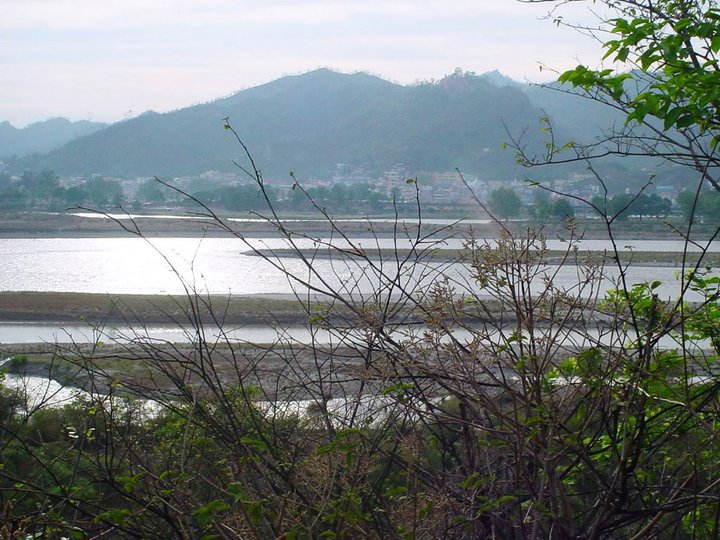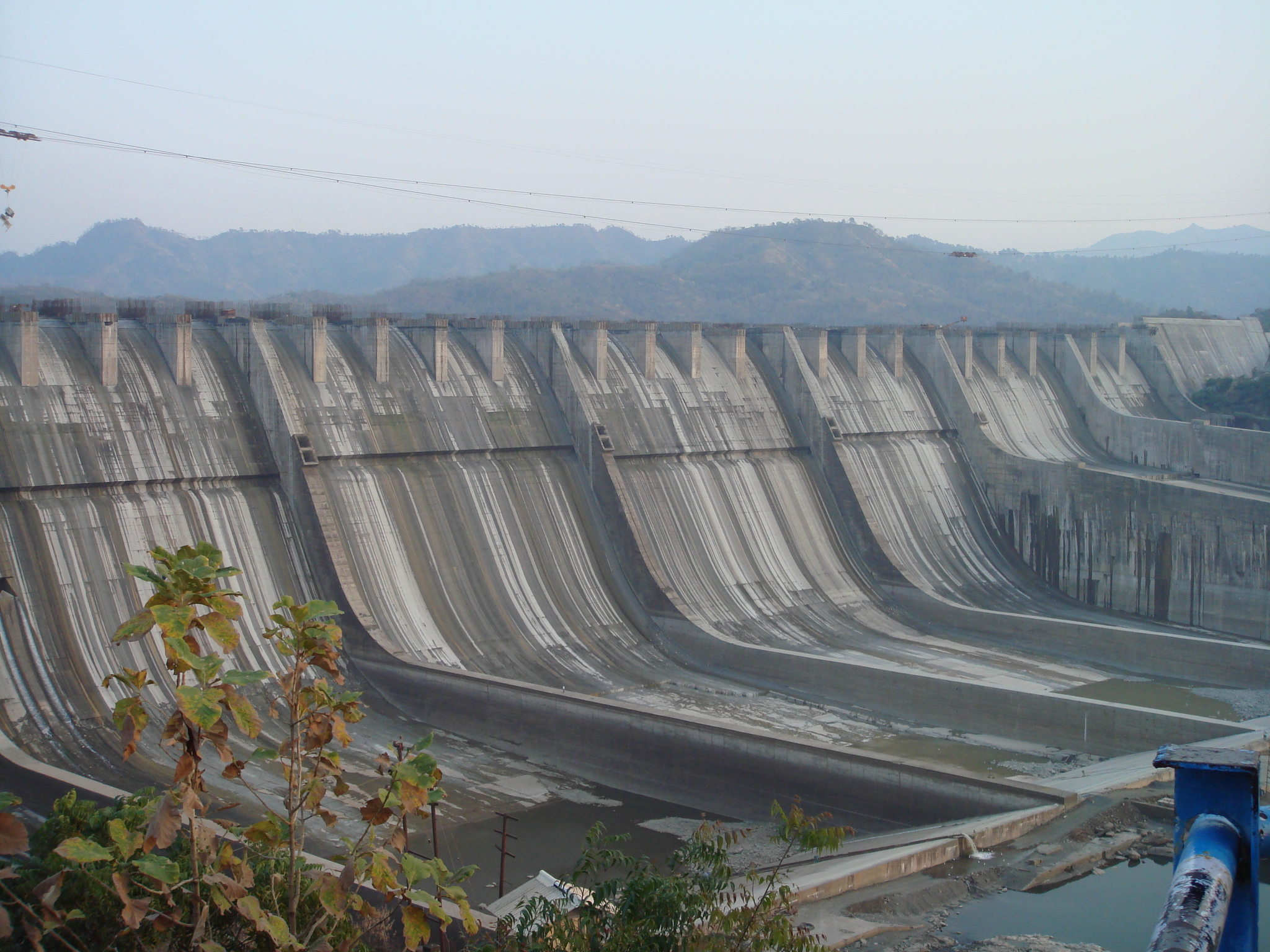|
S.M. Daud
Siraj Mehfuz Daud, or S.M. Daud (1 January 1931 – 10 May 2010) was a lawyer who became a judge in the high court of Bombay, India. After retirement he participated in several tribunals investigating human rights problems. Career Siraj Mehfuz Daud was born on 1 January 1931. He attended Nagpur University earning an M.A. in Political Science. He then obtained an LL.B. degree and served as a district pleader in Nagpur from 1951 to 1954. In September 1954 Daud became a Civil Judge, Junior Division and a Judicial Magistrate First Class at Amravati in the Vidarbha region. In February 1968 he was promoted to Assistant Judge. In August 1974 he was promoted to District Judge, and in January 1982 he became a Selection Grade District Judge. He also worked for the Government of Maharashtra as Deputy and Joint Secretary in the Mantralaya Law & Judicial Department. He was Registrar of the high court of Bombay from December 1982 to July 1985, when he was appointed to the bench of the hi ... [...More Info...] [...Related Items...] OR: [Wikipedia] [Google] [Baidu] |
Nagpur
Nagpur (pronunciation: Help:IPA/Marathi, [naːɡpuːɾ]) is the third largest city and the winter capital of the Indian state of Maharashtra. It is the 13th largest city in India by population and according to an Oxford's Economics report, Nagpur is projected to be the fifth fastest growing city in the world from 2019 to 2035 with an average growth of 8.41%. It has been proposed as one of the Smart Cities Mission, Smart Cities in Maharashtra and is one of the top ten cities in India in Smart Cities Mission, Smart City Project execution. In the latest rankings of 100 developing smart cities given by the Union Ministry of Urban Development (Maharashtra), Ministry of Urban Development, Nagpur stood first in Maharashtra state and second in India. Known as the "Orange City", Nagpur has officially become the greenest, safest and most technologically developed city in the Maharashtra state. Nagpur is the seat of the annual Winter Session of Maharashtra State Assembly, winter session ... [...More Info...] [...Related Items...] OR: [Wikipedia] [Google] [Baidu] |
Indian People's Human Rights Tribunal
The Indian People's Tribunal (IPT), also called the Indian People's Tribunal on Environmental and Human Rights or Independent People's Tribunal, was a People's Tribunal set up by the Human Rights Law Network (HRLN) on 5 June 1993. The IPT is an unofficial body led by retired judges who form a panel that conducts public enquiries into human rights and environmental abuses. It provides an alternative outlet for the victims faced with official obstruction and delays. Since being founded the IPT has conducted numerous investigations into cases of relocation of rural people to make way for dams or parks, eviction of slum dwellers, industrial pollution and communal or state-sponsored violence. Foundation The parent body of the Indian People's Tribunal is the Human Rights Law Network, a collective of lawyers and social activists who promote human rights in India and neighbouring countries. The objectives of the IPT when it was founded in 1993 were to "encourage victim communities to ... [...More Info...] [...Related Items...] OR: [Wikipedia] [Google] [Baidu] |
Judges Of The Bombay High Court
A judge is an official who presides over a court. Judge or Judges may also refer to: Roles *Judge, an alternative name for an adjudicator in a competition in theatre, music, sport, etc. *Judge, an alternative name/aviator call sign for a member of the Judge Advocate General's Corps, U.S. Navy *Judge, an alternative name for a sports linesman, referee or umpire * Biblical judges, an office of authority in the early history of Israel Places * Judge, Minnesota, a community in the United States * Judge, Missouri, a community in the United States * The Judge (British Columbia), a mountain in the Columbia Mountains of Canada People * Judge (surname) * Judge Jules, professional name of British DJ and record producer Julius O'Riordan Arts, entertainment, and media Fictional characters * Judge (Buffyverse), a demon in the television series ''Buffy The Vampire Slayer'' * Archadian Judges, from the game ''Final Fantasy XII'' * Judge Holden, from Cormac McCarthy's novel ''Bl ... [...More Info...] [...Related Items...] OR: [Wikipedia] [Google] [Baidu] |
2010 Deaths
This is a list of deaths of notable people, organised by year. New deaths articles are added to their respective month (e.g., Deaths in ) and then linked here. 2022 2021 2020 2019 2018 2017 2016 2015 2014 2013 2012 2011 2010 2009 2008 2007 2006 2005 2004 2003 2002 2001 2000 1999 1998 1997 1996 1995 1994 1993 1992 1991 1990 1989 1988 1987 See also * Lists of deaths by day The following pages, corresponding to the Gregorian calendar, list the historical events, births, deaths, and holidays and observances of the specified day of the year: Footnotes See also * Leap year * List of calendars * List of non-standard ... * Deaths by year {{DEFAULTSORT:deaths by year ... [...More Info...] [...Related Items...] OR: [Wikipedia] [Google] [Baidu] |
1931 Births
Events January * January 2 – South Dakota native Ernest Lawrence invents the cyclotron, used to accelerate particles to study nuclear physics. * January 4 – German pilot Elly Beinhorn begins her flight to Africa. * January 22 – Sir Isaac Isaacs is sworn in as the first Australian-born Governor-General of Australia. * January 25 – Mohandas Gandhi is again released from imprisonment in India. * January 27 – Pierre Laval forms a government in France. February * February 4 – Soviet leader Joseph Stalin gives a speech calling for rapid industrialization, arguing that only strong industrialized countries will win wars, while "weak" nations are "beaten". Stalin states: "We are fifty or a hundred years behind the advanced countries. We must make good this distance in ten years. Either we do it, or they will crush us." The first five-year plan in the Soviet Union is intensified, for the industrialization and collectivization of agriculture. * February 10 � ... [...More Info...] [...Related Items...] OR: [Wikipedia] [Google] [Baidu] |
The Times Of India
''The Times of India'', also known by its abbreviation ''TOI'', is an Indian English-language daily newspaper and digital news media owned and managed by The Times Group. It is the third-largest newspaper in India by circulation and largest selling English-language daily in the world. It is the oldest English-language newspaper in India, and the second-oldest Indian newspaper still in circulation, with its first edition published in 1838. It is nicknamed as "The Old Lady of Bori Bunder", and is an Indian " newspaper of record". Near the beginning of the 20th century, Lord Curzon, the Viceroy of India, called ''TOI'' "the leading paper in Asia". In 1991, the BBC ranked ''TOI'' among the world's six best newspapers. It is owned and published by Bennett, Coleman & Co. Ltd. (B.C.C.L.), which is owned by the Sahu Jain family. In the Brand Trust Report India study 2019, ''TOI'' was rated as the most trusted English newspaper in India. Reuters rated ''TOI'' as India's most trus ... [...More Info...] [...Related Items...] OR: [Wikipedia] [Google] [Baidu] |
Indian People's Tribunal On Environment And Human Rights
The Indian People's Tribunal (IPT), also called the Indian People's Tribunal on Environmental and Human Rights or Independent People's Tribunal, was a People's Tribunal set up by the Human Rights Law Network (HRLN) on 5 June 1993. The IPT is an unofficial body led by retired judges who form a panel that conducts public enquiries into human rights and environmental abuses. It provides an alternative outlet for the victims faced with official obstruction and delays. Since being founded the IPT has conducted numerous investigations into cases of relocation of rural people to make way for dams or parks, eviction of slum dwellers, industrial pollution and communal or state-sponsored violence. Foundation The parent body of the Indian People's Tribunal is the Human Rights Law Network, a collective of lawyers and social activists who promote human rights in India and neighbouring countries. The objectives of the IPT when it was founded in 1993 were to "encourage victim communities to ... [...More Info...] [...Related Items...] OR: [Wikipedia] [Google] [Baidu] |
Indian Express
''The Indian Express'' is an English-language Indian daily newspaper founded in 1932. It is published in Mumbai by the Indian Express Group. In 1999, eight years after the group's founder Ramnath Goenka's death in 1991, the group was split between the family members. The southern editions took the name ''The New Indian Express'', while the northern editions, based in Mumbai, retained the original ''Indian Express'' name with ''"The"'' prefixed to the title. History In 1932, the ''Indian Express'' was started by an Ayurvedic doctor, P. Varadarajulu Naidu, at Chennai, being published by his "Tamil Nadu" press. Soon under financial difficulties, he sold the newspaper to Swaminathan Sadanand, the founder of ''The Free Press Journal'', a national news agency. In 1933, the ''Indian Express'' opened its second office in Madurai, launching the Tamil edition, '' Dinamani''. Sadanand introduced several innovations and reduced the price of the newspaper. Faced with financial difficultie ... [...More Info...] [...Related Items...] OR: [Wikipedia] [Google] [Baidu] |
Arundhati Roy
Suzanna Arundhati Roy (born 24 November 1961) is an Indian author best known for her novel ''The God of Small Things'' (1997), which won the Booker Prize for Fiction in 1997 and became the best-selling book by a non-expatriate Indian author. She is also a political activist involved in human rights and environmental causes. Early life Arundhati Roy was born in Shillong, Meghalaya, India, to Mary Roy, a Malayali Jacobite Syrian Christian women's rights activist from Kerala and Rajib Roy, a Bengali Hindu tea plantation manager from Calcutta.Siddhartha Deb,Arundhati Roy, the Not-So-Reluctant Renegade", ''The New York Times'', 5 March 2014. Accessed 5 March 2014. When she was two, her parents divorced and she returned to Kerala with her mother and brother. For some time, the family lived with Roy's maternal grandfather in Ooty, Tamil Nadu. When she was five, the family moved back to Kerala, where her mother started a school. Roy attended school at Corpus Christi, Kottayam, f ... [...More Info...] [...Related Items...] OR: [Wikipedia] [Google] [Baidu] |
People's Union For Civil Liberties
People's Union for Civil Liberties (PUCL) is a human rights body formed in India in 1976 by Jayaprakash Narayan, as the People's Union for Civil Liberties and Democratic Rights (PUCLDR). Background Indian emergency Jayaprakash Narayan was a Gandhian leader in India after independence. When Indira Gandhi was found guilty of violating electoral laws by the Allahabad High Court, Narayan called for her to resign, and advocated a program of social transformation. He asked the military and police to disregard unconstitutional and immoral orders. However, Janata Party opposition leaders and dissenting members of Indira Gandhi's party, Congress (I) were arrested, beginning The Emergency in 1975. Narayan was detained at Chandigarh, and when released in 1976, formed the PUCLDR to oppose the suppression of civil and political rights during the emergency. The organization was thrown into disarray by his death and the election of the Janata party to power, which promised to enact the PUCL ... [...More Info...] [...Related Items...] OR: [Wikipedia] [Google] [Baidu] |
Sanjay Gandhi National Park
Sanjay Gandhi National Park, also known as SGNP, is an protected area in Mumbai, Maharashtra. It was established in 1969 with its headquarters situated at Borivali. The 2400-year-old Kanheri caves, sculpted by monks out of the rocky basaltic cliffs, lie within the park. The rich flora and fauna of the Sanjay Gandhi National Park attract more than 2 million visitors every year. History The area of the Sanjay Gandhi National Park has a long written history dating back to the 4th Century BCE. In Ancient India, Sopara and Kalyan were two ports in its vicinity that traded with ancient civilisations such as Greece and Mesopotamia. The land route between these two ports was partially passing through this forest. The Kanheri caves, located centrally in the park, were important Buddhist learning centres and pilgrimage sites sculpted by Buddhist monks (using primitive sculpting tools) between the 9th and the 1st centuries BCE. They were chiselled out of a massive basaltic rock outcr ... [...More Info...] [...Related Items...] OR: [Wikipedia] [Google] [Baidu] |






